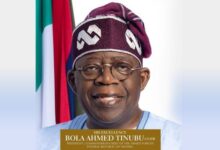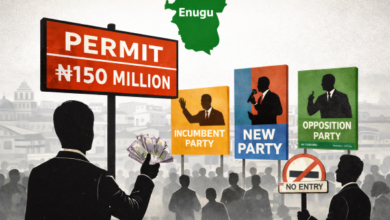
Pushes for Global Financial Reform, Climate Equity, and Inclusive Development
In a bold diplomatic statement at the 17th BRICS Summit held in Rio de Janeiro, President Bola Ahmed Tinubu called for urgent reforms to global governance systems, advocating for a new multilateral order that reflects the aspirations of Africa and emerging economies.
Speaking as Nigeria’s first leader to formally address the expanded BRICS bloc since the country became a BRICS partner nation in January 2025, Tinubu urged the alliance to champion inclusive policies that address climate change, healthcare inequality, sovereign debt traps, and economic marginalisation.
“Africa has contributed the least to global emissions but suffers the most from its consequences,” President Tinubu said.
“We cannot remain passive observers of global decision-making. We must be active architects of a fairer future.”
Nigeria at BRICS: A Strategic Alignment for Multipolar Growth
Nigeria’s entry into BRICS as a partner country—alongside Belarus, Bolivia, Cuba, Kazakhstan, Malaysia, Thailand, Uganda, and Uzbekistan—marks a strategic shift in the country’s global positioning, reflecting its large demographic, natural resources, and economic potential.
The move aligns with the bloc’s broader push for multi-polarity, currency diversification, and reforms of Bretton Woods institutions like the IMF and World Bank.
With BRICS’ formal expansion to include Egypt, Ethiopia, Iran, and the UAE, Nigeria’s participation as a partner reflects growing support for South-South cooperation and development models independent of Western-dominated institutions.
“BRICS must be more than a bloc for emerging economies. It must be a beacon for emerging solutions—rooted in solidarity, sustainability, and shared prosperity,” Tinubu told the summit.
Key Policy Themes: Climate Justice, Healthcare Access, and Youth-Centric Growth
President Tinubu outlined Nigeria’s contribution to global sustainability through initiatives such as:
- The African Carbon Market Initiative
- The Great Green Wall project
- Nigeria’s Renewable Energy Transition Roadmap
- Urban resilience and climate-smart infrastructure investment
He emphasized Nigeria’s commitment to COP-30 goals, nature-based solutions, and universal health coverage, while calling on BRICS to prioritise non-communicable diseases (NCDs) and access to healthcare technologies for the Global South.
“Environmental degradation, healthcare inequities, and climate crises are global concerns, but disproportionately impact Africa. Justice demands we are not just included—but heard and supported,” he said.
He also linked Nigeria’s development outlook to the country’s Vision 2050 and its Nationally Determined Contributions (NDCs) under the Paris Agreement.
A Message to the Global South: Africa Can’t Wait
With 70% of Nigeria’s population under 30, Tinubu pressed for global frameworks that prioritise the needs of young people, empower small businesses, and unlock innovation across the continent.
“Africa’s youth are not liabilities. They are assets that need opportunity. Global systems must adapt to their reality—not exclude them from it,” he declared.
BRANDECONOMY Insight: Nigeria Seeks More Than a Seat—It Wants to Shape the Table
Tinubu’s BRICS address reflects a growing shift in Nigeria’s foreign policy—from reactive diplomacy to assertive engagement on global economic governance. At the heart of this shift is a desire to reframe the narrative around Africa—not as aid-dependent, but as a co-driver of innovation, climate action, and trade equity.
Nigeria’s BRICS affiliation—though still at the partner level—offers a strategic platform to:
- Push for development financing reform
- Expand trade and energy partnerships with the Global South
- Influence the creation of alternative financial systems, including digital currencies and de-dollarisation efforts
This also places Nigeria at the intersection of emerging geo-economic blocs, enabling it to balance relations with Western, Eastern, and Southern hemispheres, while still driving national priorities such as economic diversification, net-zero transition, and financial inclusion.












